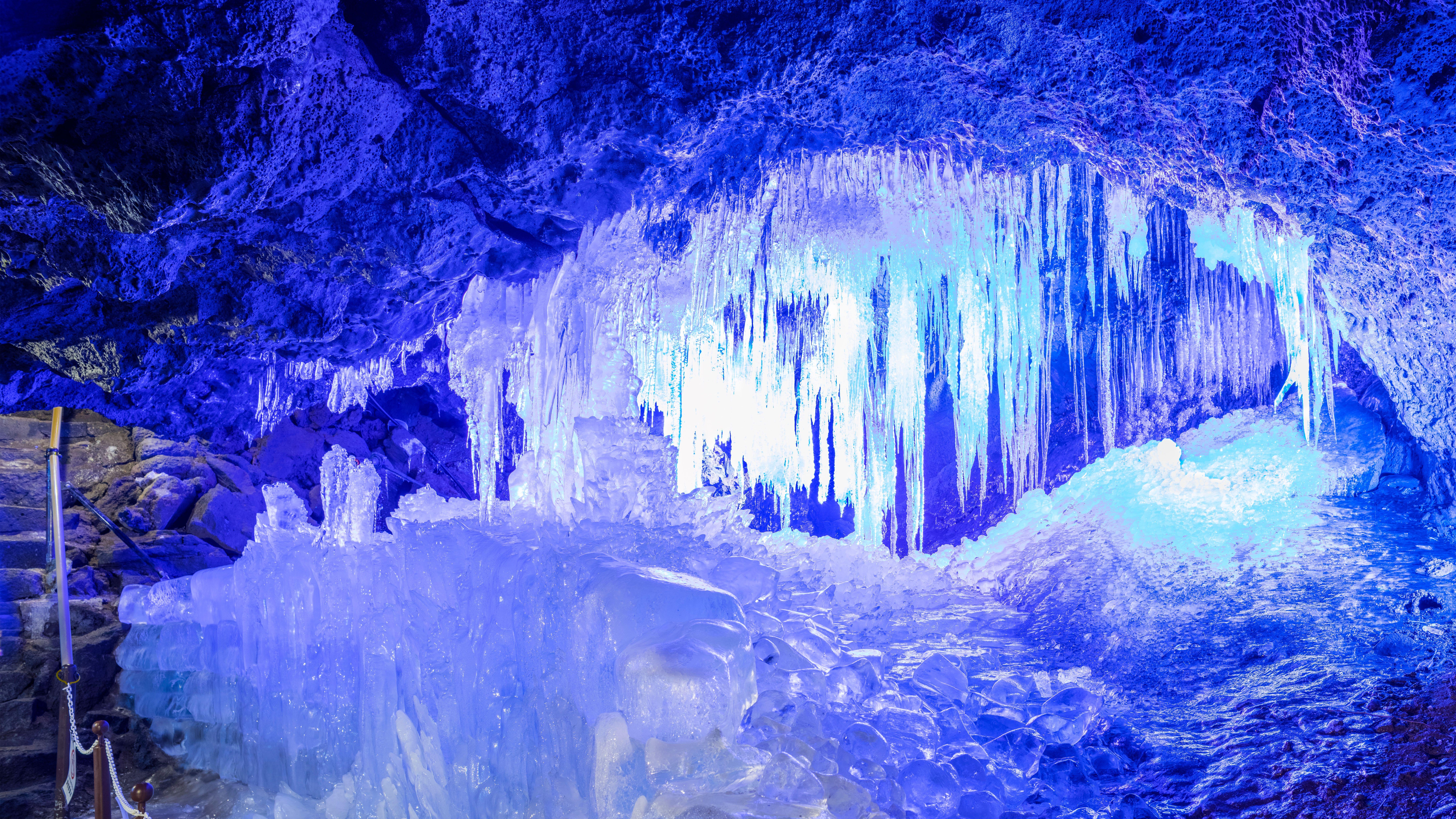10 'breathtaking' photos of our galaxy from the 2024 Milky Way Photographer of the Year contest
From dangerous lion reserves to high mountain peaks, photographers go all out to capture the most spectacular images of our galaxy in this year's Milky Way Photographer of the Year competition.
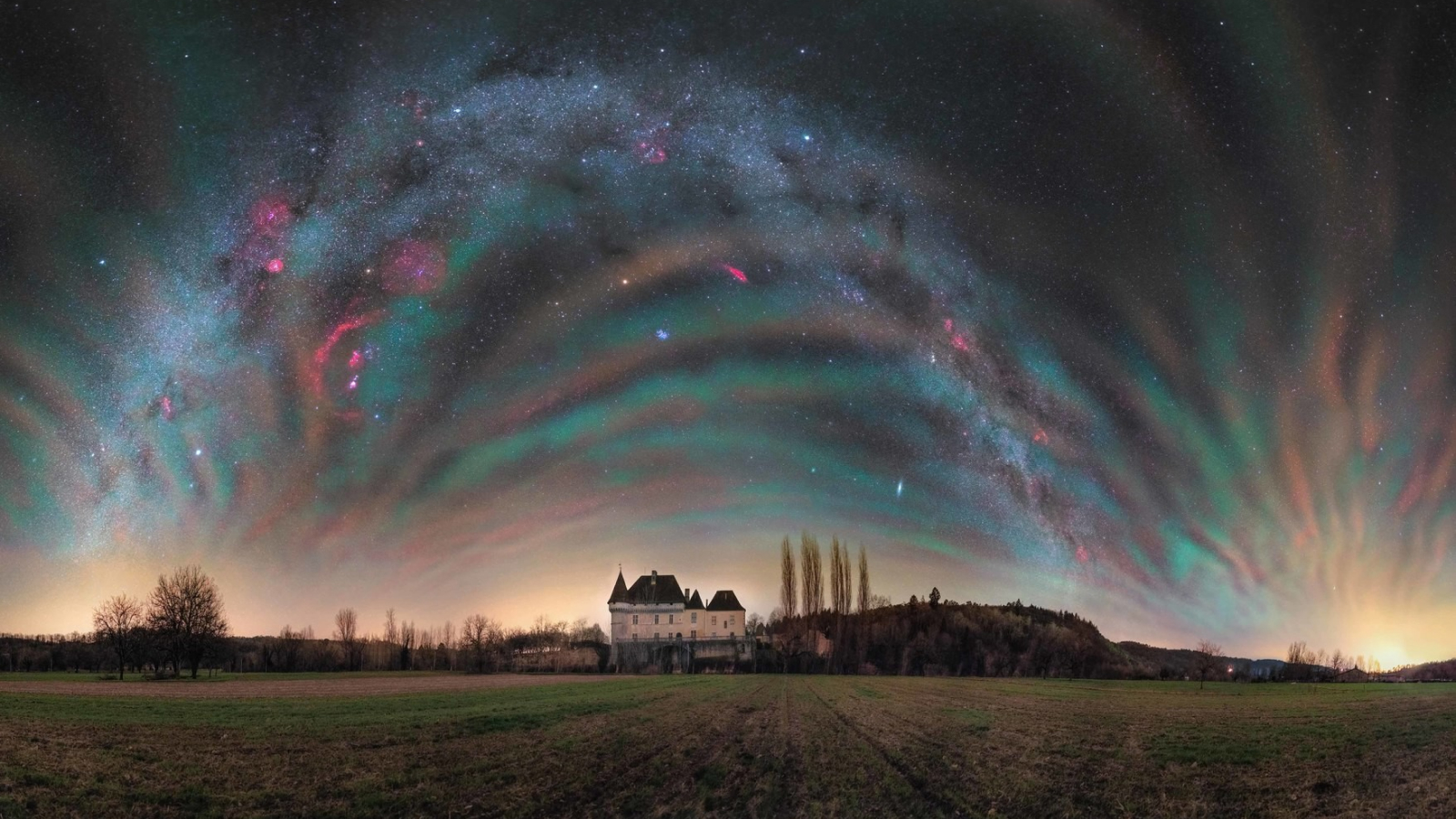
The Milky Way has long fascinated humanity, covering the night sky with its familiar constellations and dense streams of stars. The full beauty of our galaxy is hard to see with the naked eye, but with the help of modern cameras, photographers can capture it in vibrant detail.
The annual Milky Way Photographer of the Year competition showcases awe-inspiring images that bring the greatness of our celestial home into view. Here, we explore our breathtaking galaxy through the lens of this year's winners.
"Lightning lake" — Tom Rae
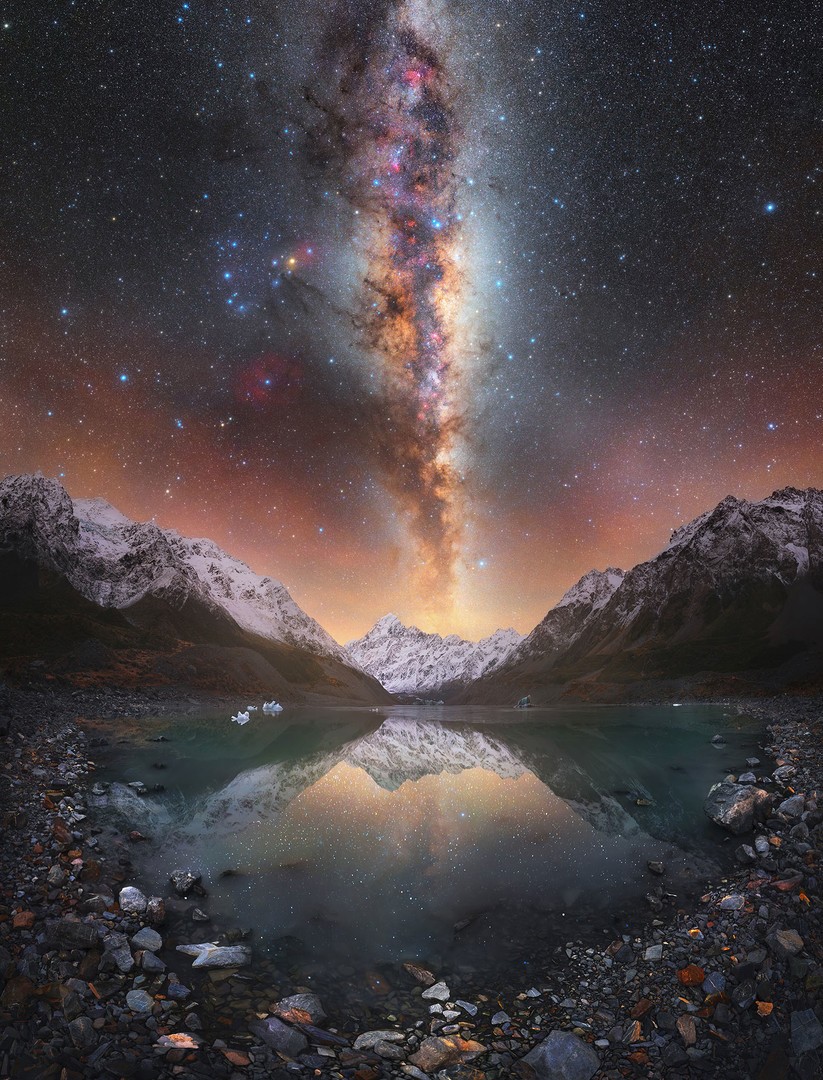
The bold ribbon of the Milky Way parts the sky as it strikes the peak of Aoraki / Mount Cook, the highest mountain in New Zealand. Tom Rae journeyed through a glacial valley to capture the glowing sky against the cyan-blue lake and icy terrain on a winter night.
"Lions den" — Lorenzo Ranieri Tenti
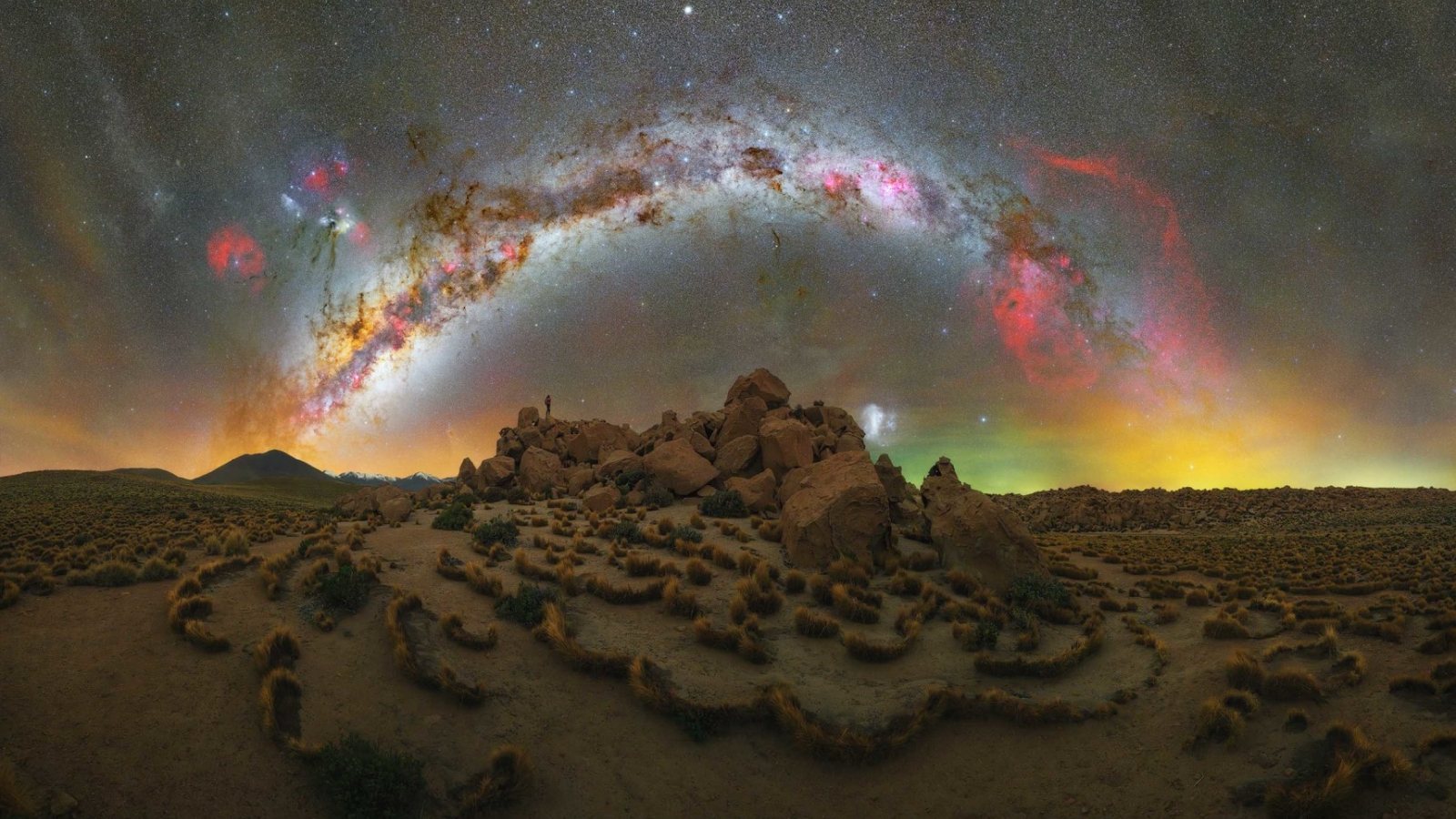
Lorenzo Ranieri Tenti took this captivating image of the multicolored hues of the Milky Way in the night sky. This image was taken at a mountain lion reserve in the Atacama Desert in Chile — home to several astronomical telescopes, including the forthcoming Vera C. Rubin Observatory, as well as cougars (Puma concolor).
"Atmospheric fireworks" — Julien Looten

As if taken in the center of a bubble, this panoramic image captures the entire arc of the Milky Way alongside a stunning airglow that lights up the night sky in the southwest of France.
Julien Looten took and merged panoramic photos of 40 different exposures to capture the multicolored bands. "This natural phenomenon occurs due to a chemical reaction in the upper atmosphere, emitting faint light known as chemiluminescence," Looten said in a statement.
Get the world’s most fascinating discoveries delivered straight to your inbox.
"Blooming bottle tree" — Rositsa Dimitrova
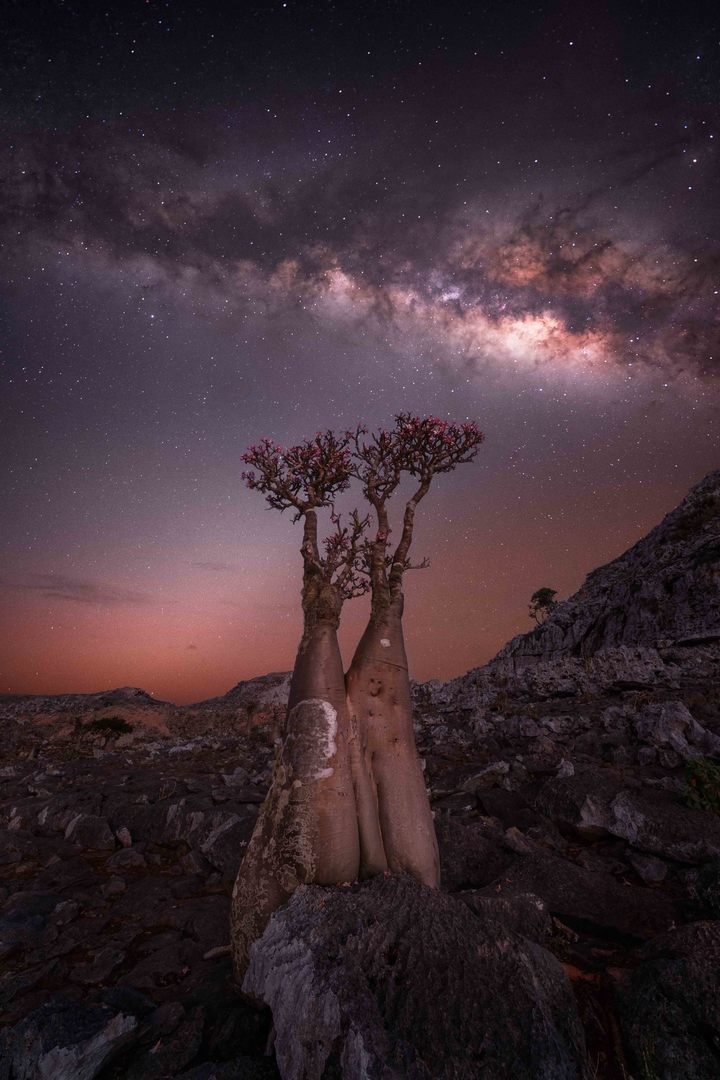
This stunning photo captures the Milky Way above a blooming bottle tree (Adenium socotranum) — a tree endemic to Socotra island in Yemen.
Rositsa Dimitrova took advantage of the island's total lack of light pollution to capture this spectacular photo. "The night sky in Socotra is categorized as Bortle 1 on the dark sky scale — the darkest you can possibly get," Dimitrova said in the statement.
"The vanity of life" — Mihail Minkov
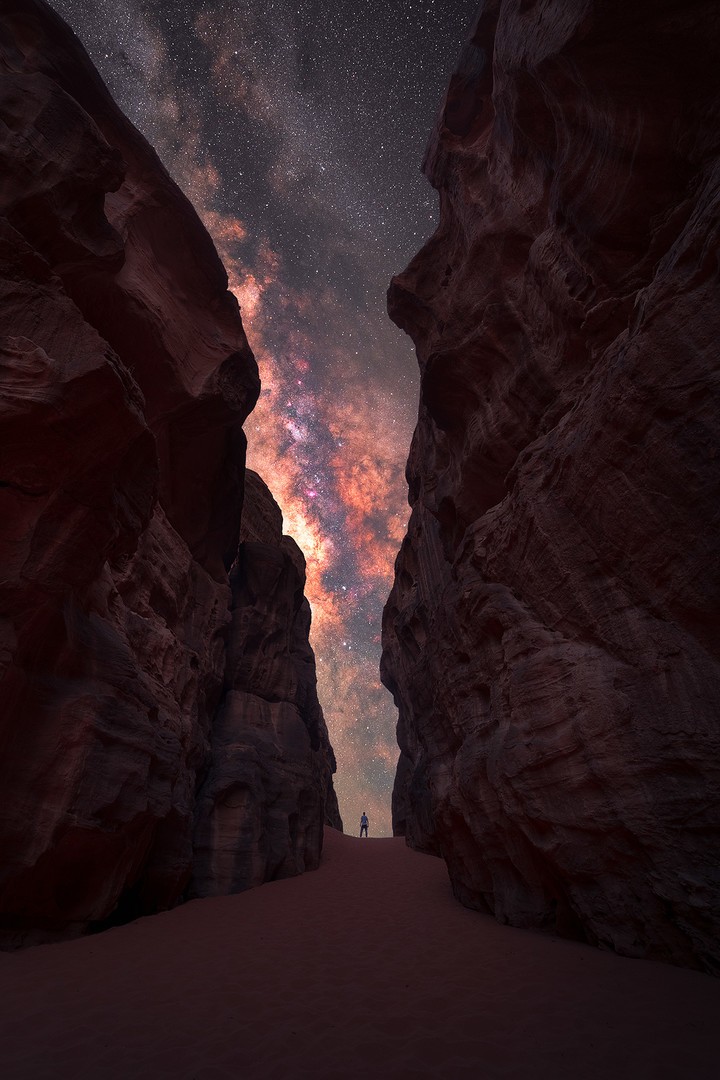
In Jordan's Wadi Rum Desert, also known as the Valley of the Moon, Mihal Minkov captured a lone figure in an otherworldly landscape. Overhead, the shining stars of the Milky Way shimmer.
"Starry hoodoo wonderland" — Stephanie Thi
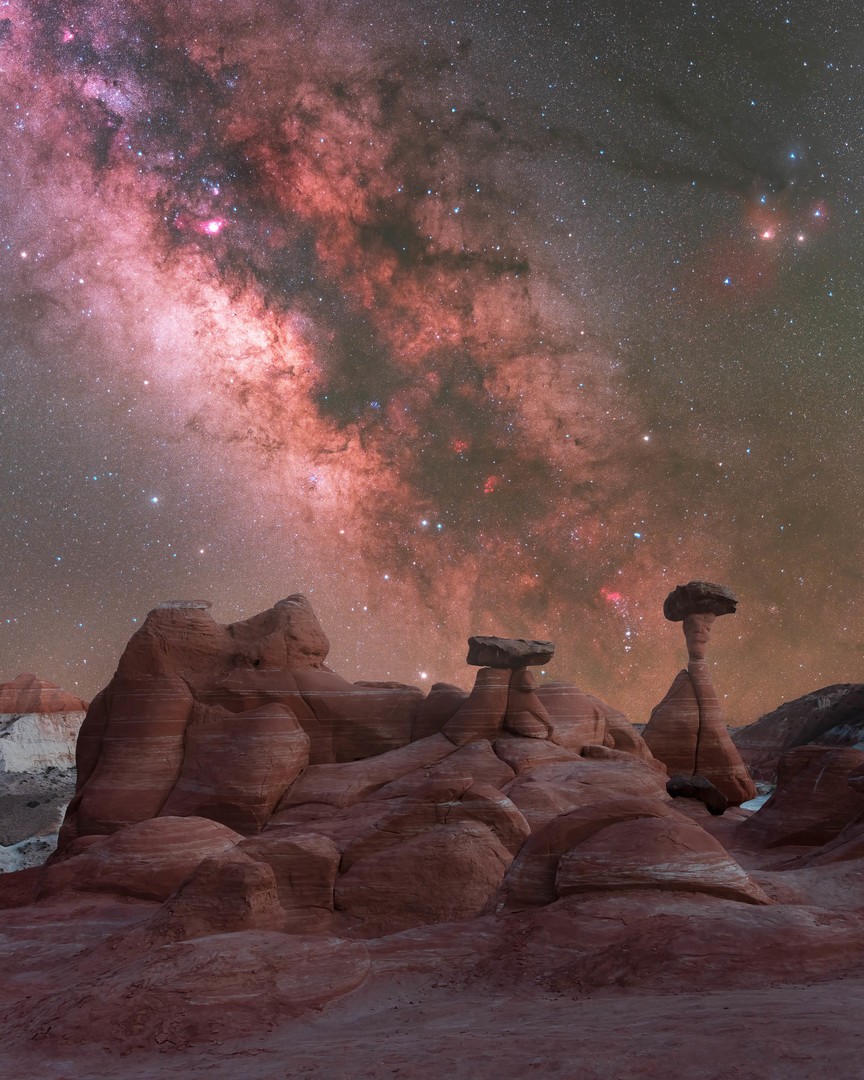
Photographed over Kanab, Utah, the Milky Way covers the sky above a scenic landscape of balanced rock formations, known as hoodoos. These toadstool formations are shaped over millions of years by erosion.
"Starlight therapy" — Kavan Chay
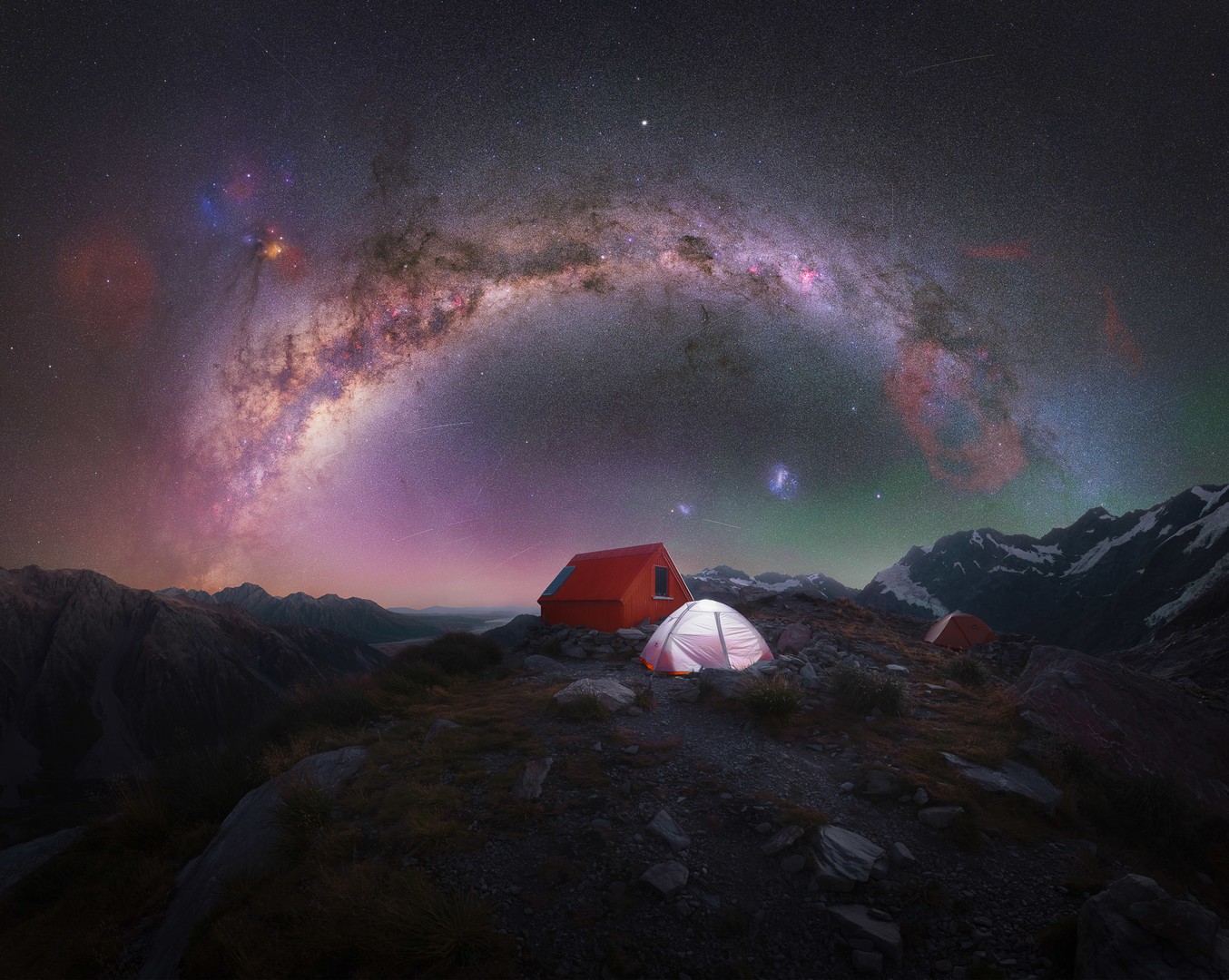
In this stunning photograph, the Milky Way arches gracefully over some campers on the rugged mountain of Aoraki / Mount Cook. Kavan Chay made the ascent to camp under the ethereal glow of the night sky — a scene he described as "breathtaking" in the statement.
"Road to winter paradise" — Andrea Curzi
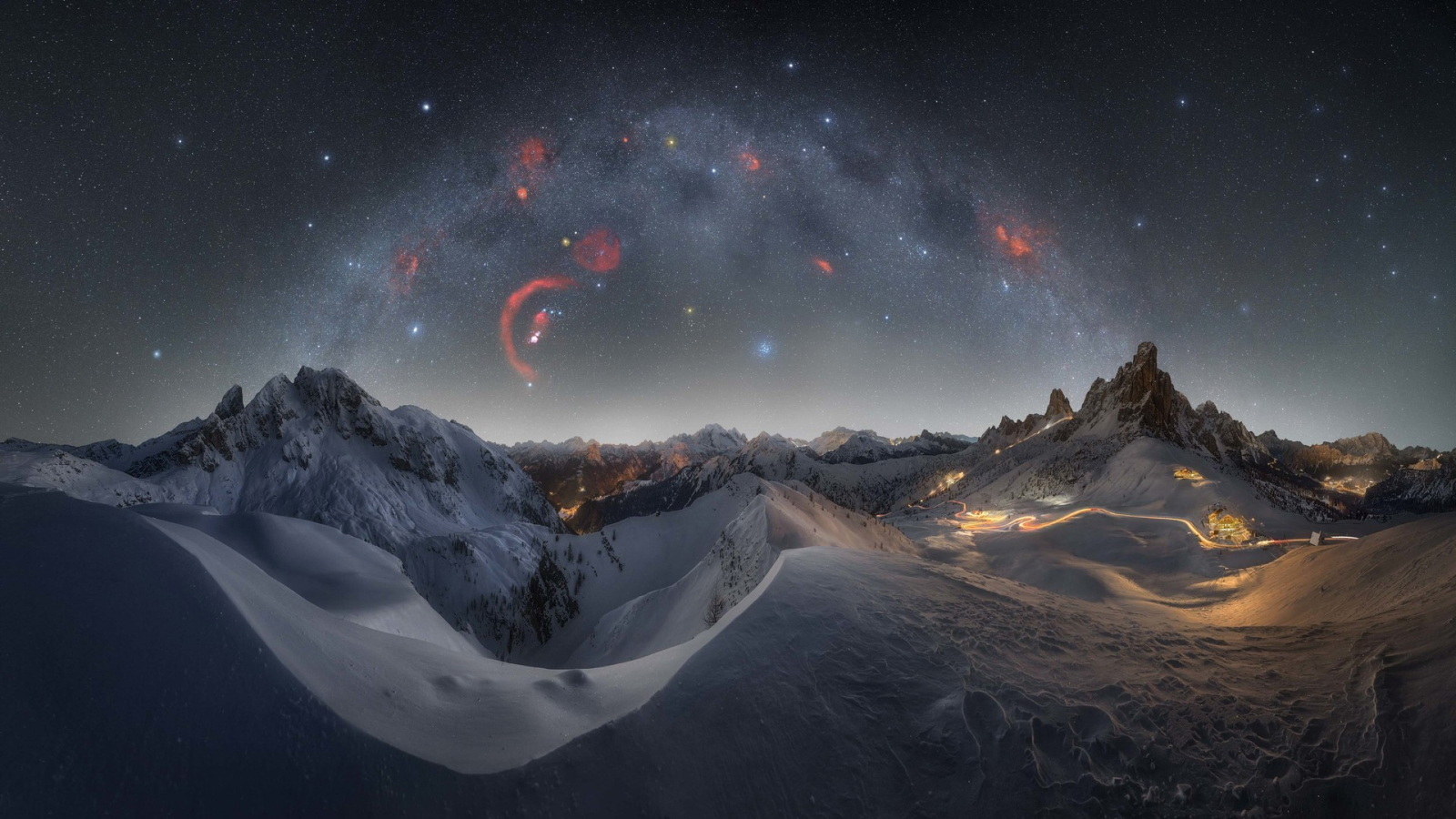
Above the high mountain pass of Passo Giau in Italy, the luminous band of the Milky Way shines down on the untouched, snow-covered ground. Andrea Curzi captured this approximately 300-degree field of view of the galaxy while temperatures were at a frigid 17 degrees Fahrenheit (minus 8 degrees Celsius).
"The celestial symphony above a high desert lagoon" — Kerry-Ann Lecky Hepburn
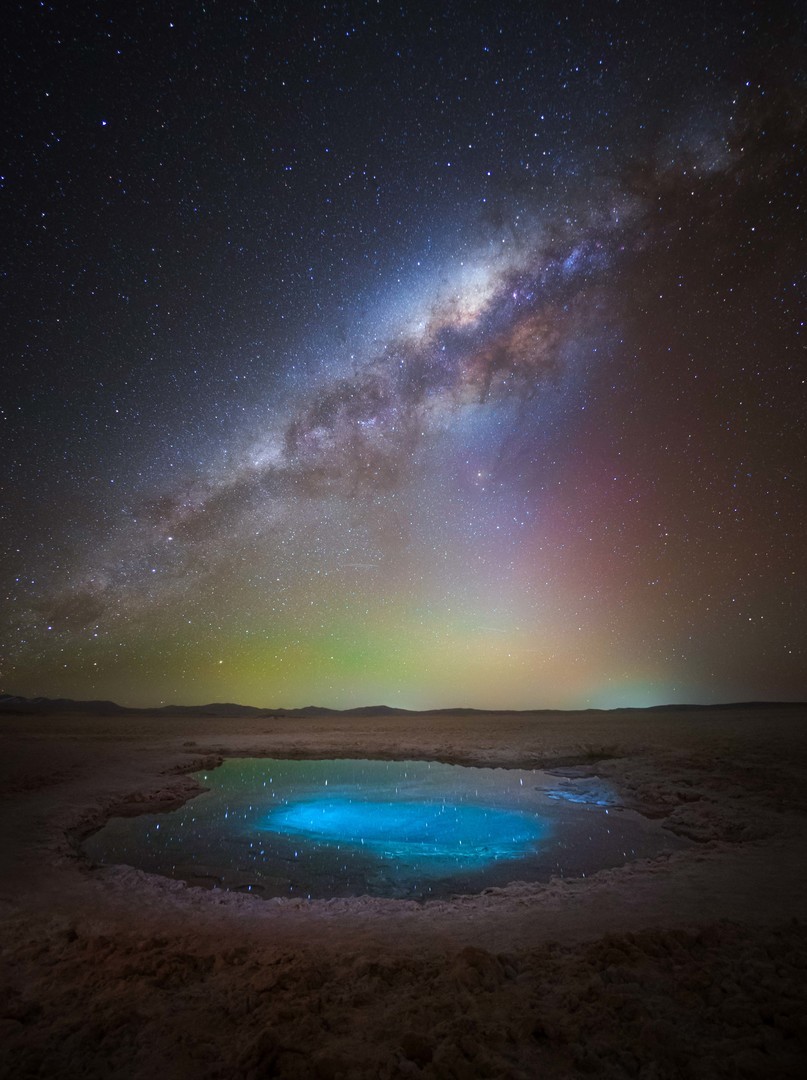
In this image, taken at about 15,000 feet (4,500 meters) above sea level, a calm lagoon glows under a tapestry of the Milky Way's stars in the Atacama Desert. Kerry-Ann Lecky Hepburn noticed that during the day the sun's beams bounced off the pool of water and replicated this by using a flashlight to capture the magical scene at night.
"Milky Way at morning glory pool" — Jerry Zhang
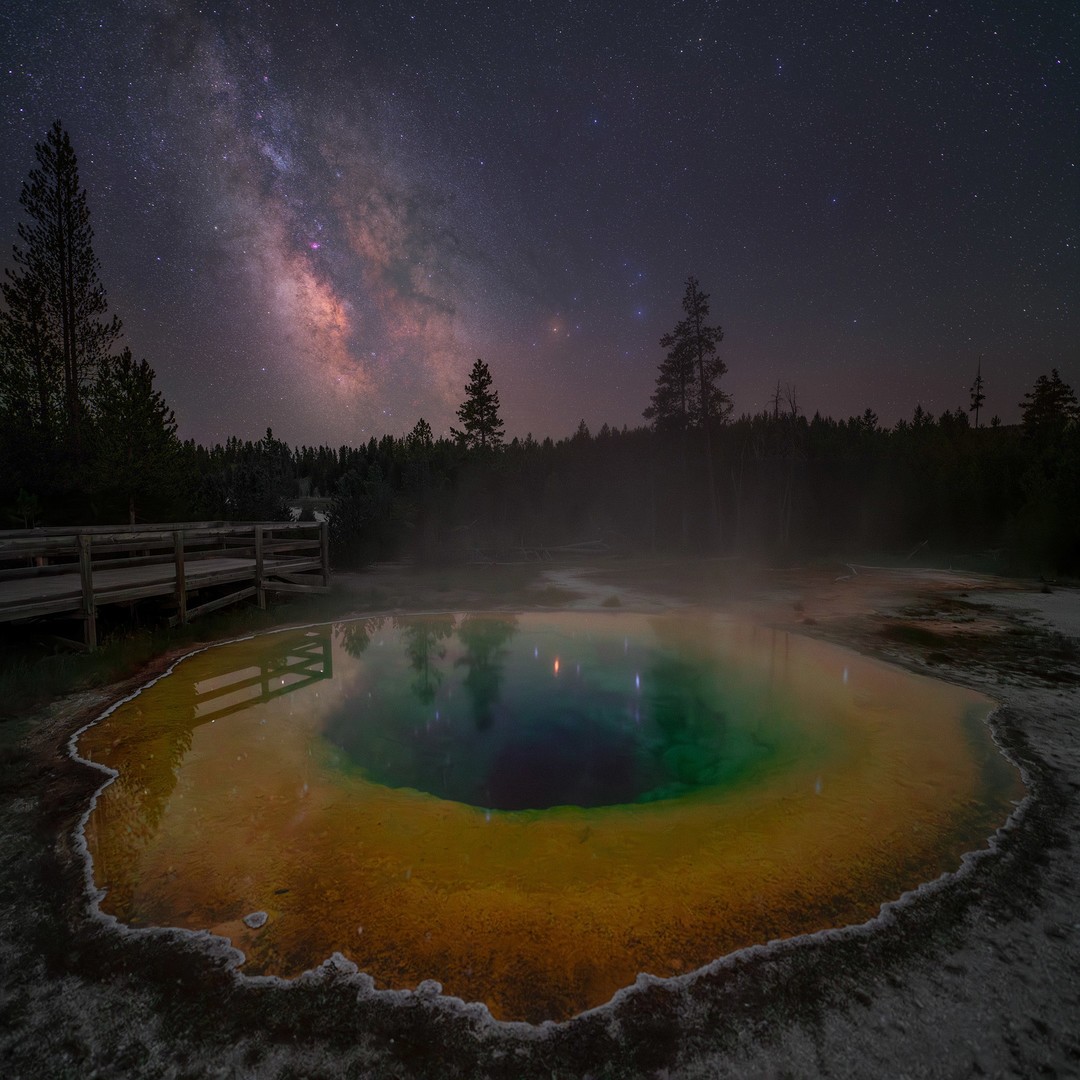
In this image, dense stars reflect off of the renowned Morning Glory hot spring in Yellowstone National Park. The pool mirrors the constellations Scorpius and Antares.
The hot spring was named for its likeness to a colorful flower. But its famous crystal blue waters have changed to a bright green because of pollution, Zhang said in the statement.
To see the full list of winners, check out the official Milky Way Photographer of the Year website.

Elise studied marine biology at the University of Portsmouth in the U.K. She has worked as a freelance journalist focusing on the aquatic realm.
